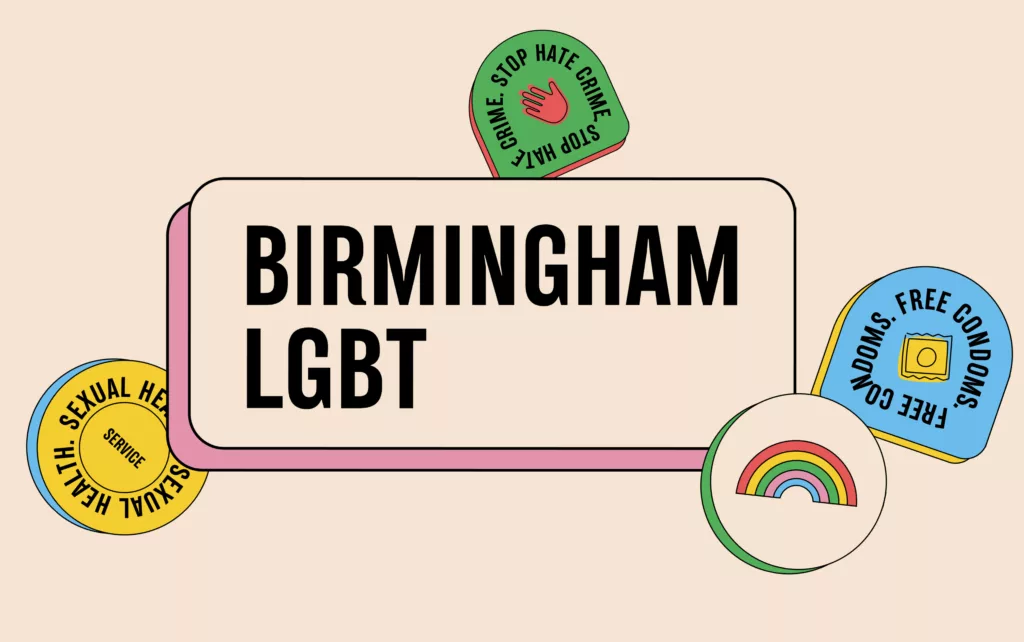As a community lesbian, gay, bisexual and trans (LGBT) people have been on an interesting journey over the past half century. In 1957 when the Wolfenden report recommended that homosexuality be decriminalised, the long march towards equality began. Ten years later, in 1967, when decriminalisation actually took place the fight began in earnest. Individuals who identified as LGBT still had to face an incredibly hostile public, media and political establishment. They also faced continued discrimination in law, such as the infamous 1954 ‘Sexual Offences Act’, which the police often enforced with great zeal, resulting in hundreds of thousands of gay men being publicly ‘outed’ and often given custodial sentences over the years.
Although after 1967 it was no longer a criminal offence for two men to have sexual relations, in private and aged over twenty one, the reality for many people was social stigma, possible loss of livelihood, isolation from family, the ever present threat of verbal and physical abuse and continued police hostility. This meant many people stayed in the proverbial ‘closet’ and denied to the world and often themselves their true identities, with all too often destructive consequences for the individuals concerned and their families.
Fifty years on after countless changes in legislation, a major shift in social attitudes and a heroic struggle by a diverse range of individuals and organisations, being gay in Britain is a relatively benign experience. Especially compared to other parts of the world; recall the hanging of two teenage boys in Iran, a hateful violation of Human Rights and an illustration the plight many LGBT people around the world still face.
Of course it would be naive to suggest that all is well for Britain’s estimated 3.6 million lesbian, gay, bisexual and trans people as many still experience extreme forms of intolerance including physical violence and even death.
Many people still feel unable to come out at work for fear of the effects on their employment or career prospects, despite legislation to protect us from discrimination. A recent systematic review by Birmingham University of mental disorders, suicide and self harm in lesbian, gay and bisexual people has shown that there is a doubling of the risk of suicide attempts. The risk for depression and anxiety disorders was at least 1.5 times higher in LGBT people and there was a similar high risk of alcohol abuse and dependence.
Historically, in Birmingham, there has been an almost total lack of engagement from the statutory sector and little support from the established voluntary sector. For many years the voices and needs of LGBT citizens could easily be ignored, with no legislative duty in place to ensure dialogue and address those needs. This has left the LGBT community as one of the least visible, least understood and most poorly resourced minority groups in the city. Considering its relative size it is also one of least influential.
Birmingham LGBT Community Trust was set up in 2002, with the aim of addressing the above mentioned inequalities and reinvigorating the diverse LGBT community in the city. Our vision is a vibrant, diverse lesbian, gay, bisexual and trans community in Birmingham in which individuals can realise their full potential and have equal access to all the city has to offer the city has to offer. One of our main areas of work has been to galvanise and build capacity within the LGBT community sector. In 2006 we initiated the Birmingham LGBT Forum which has grown to accommodate over 35 member organisations and directly contributes to the strategic direction and work of the trust.
We have successfully mounted numerous community focused events and projects including Pink Picnic, Queer Question Time, Are You Being Served? and Gay Life Matters all aimed at raising the profile and visibility of the community in the city and informing key service providers and stakeholders of the specific needs of the LGBT community. We also delivered the Gay Birmingham Remembered social history project and the SHOUT Queer Cultural festival in November 2009.
As an organisation we welcome the imminent introduction of the Single Equalities Bill as we believe this will bring about greater fairness and equality for all people across Britain. It should see improvements in a range of public services, from policing to family courts and from housing to health services.
David Viney is the Development Worker for Birmingham LGBT


